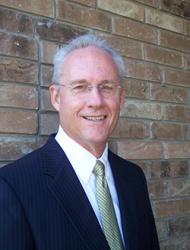Berry Kercheville
Less than two months after Israel left Egypt they arrived at the mountain of God. Their deliverance and the sight of the bodies of the Egyptian army still fresh on their mind, they trembled as the mountain quaked and God spoke out of smoke and fire uttering his covenantal commandments. “I am the Lord your God, who brought you out of the land of Egypt, out of the house of slavery” (Ex. 20:1). These words were a message of redemption. God had acted on their behalf, freeing them from a bondage they could never have attained by themselves.
God revealed his purpose. It is an unimaginable purpose. “Let them make me a sanctuary, that I may dwell in their midst” (Ex. 25:8). The Eden scene would be renewed. Man had been barred from God’s presence, but God was moving back toward his people. God would again dwell in their midst, the tabernacle built, and the glory of the Lord would return.
However, before Moses could come down the mountain, the people grew impatient. They quickly forgot their hardships in Egypt and desired to return to bondage and enjoy the passions of their flesh. God determined to destroy the nation, but invited Moses to intercede. God listened to his plea, and though he did not consume the people, the damage had been done. As Moses entered the camp and heard the  revelry, he threw the tablets down, symbolically demonstrating the broken covenant. The tribe of Levi was beckoned to gird their swords and kill their own brothers. Moses offered himself to spare the people in a foreshadowing of Jesus, but the Lord refused and plagued the people instead.
revelry, he threw the tablets down, symbolically demonstrating the broken covenant. The tribe of Levi was beckoned to gird their swords and kill their own brothers. Moses offered himself to spare the people in a foreshadowing of Jesus, but the Lord refused and plagued the people instead.
God announced to Moses words that no man would want to hear: “I will not go up among you, lest I consume you on the way, for you are a stiff-necked people. When the people heard this disastrous word, they mourned, and no one put on his ornaments.” (Ex. 33:3). Yes, the people mourned, but that could not change what they had done. In a stunning text (33:7-11), the narrator explained what “used” to happen. Before the sin, Moses was invited into a tent of meeting and the pillar of cloud would descend from which God spoke to Moses as the people watched and worshiped. But no more. God had departed, “lest he consume them.”
Moses’ Appeal to God
“Show me your ways, that I may know you in order to find favor in your sight. Consider too that this nation is your people.”
Moses desired what we all should desire, to know God in order to find favor in his sight. Moses’ plea was to know the key to God dwelling in the midst of a sinful people. The Lord’s answer was, “My presence will go with you (singular) and I will give you (singular) rest.” But that was not good enough. Moses was interceding for the people, not just himself. Therefore he said, “How shall it be known that I have found favor in your sight, I and your people? Is it not in your going with us, so that we are distinct, I and your people?” Indeed, it is the presence of the Lord we desire. Besides, what is the Promised Land without God? Heaven is not heaven if the Lord is not there.
“And the Lord said to Moses, ‘This very thing that you have spoken I will do, for you have found favor in my sight, and I know you by name.’ Moses said, ‘Please show me your glory’” (33:17-18).
This is where our Sunday School classes have caused us to miss the point of Moses’ request. In 33:10, we learned that the Lord’s presence would not go with the people and that the pillar of cloud used to stand at the tent of meeting. Moses’ request is not an out-of-context statement like, “It sure would be cool if I could see you.” Moses is asking for confirmation of God’s presence by showing his glory as he did formerly (compare Ex.16:10 and 24:9-11, 17). In other words, Moses is asking for proof that God would continue fellowship with the people.
“I will make all my goodness pass before you and will proclaim before you my name ‘The Lord.’ And I will be gracious to whom I will be gracious, and will show mercy on whom I will show mercy” (33:19).
These words are God’s confirmation that he would show mercy to an undeserving people. We tend to focus closely on God’s promise to show Moses his backside as he passed, but the more important principle was God showing his goodness, proclaiming his name, and foreshadowing the true arrival of his glory in Jesus by which he again confirmed his faithfulness to show mercy. As John states, “We beheld his glory, the glory as of the only Son from the Father, full of grace and truth…for the law came through Moses; grace and truth came through Jesus Christ. No one has ever seen God; the only God, who is at the Father’s side, he has made him known” (John 1:14, 17-18).
Therefore, when the Lord passed before Moses, he proclaimed,
“The Lord, the Lord, a God merciful and gracious, slow to anger, and abounding in steadfast love and faithfulness, keeping steadfast love for thousands, forgiving iniquity and transgression and sin, but who will by no means clear the guilty…” (Ex. 34:6-7).
God’s proclamation summarized the question and purpose of the Exodus narrative. How can a holy God dwell in the midst of an unholy people? The question is still relevant. We have all transgressed his commandments. We have built our golden calf and looked back to the gods we once served. The request of Moses becomes our request: “Show me now your ways, that I may know you in order to find favor in your sight.” The plea is, “Lord, I need to know you and understand you so I can find the grace I so desperately need.”
The Lord’s answer is embedded in this story of the broken covenant.
It is impossible to approach the holy God without an intercessor. Moses could not offer himself for the people, and though God accepted his intercession, he only foreshadowed the perfect intercessor who “saves to the uttermost since he always lives to make intercession” (Heb. 7:25). We are helpless without Jesus our high priest.
God promised, “I will show mercy on whom I will show mercy.” Though every man were unfaithful, it does not nullify the faithfulness of God (Rom. 3:3). He promised to show mercy, and mercy he has shown.
The character of God is revealed in the name of God – “The Lord, the Lord, a God merciful and gracious, slow to anger, and abounding in steadfast love and faithfulness.” God’s revelation of himself triggered an immediate plea from Moses, “Please let the Lord go in the midst of us, for it is a stiff-necked people, and pardon our iniquity and our sin, and take us for your inheritance” (Ex. 34:9). In fact, from this point on, Moses, and later David, appealed to God on the basis of his steadfast love and faithfulness.
Exodus was written for us (1 Cor. 10:11). It is our story. It is a story of our redemption and a covenant renewed on our behalf. How can a holy God dwell in our midst? There is never a reason to give up. Our intercessor is behind the veil. No matter how deep the sin, if we turn to him with a humble heart, he cannot turn us away. It is not in his nature. He abounds in steadfast love, and has washed us in the blood of the Lamb.
berrykerch@gmail.com

